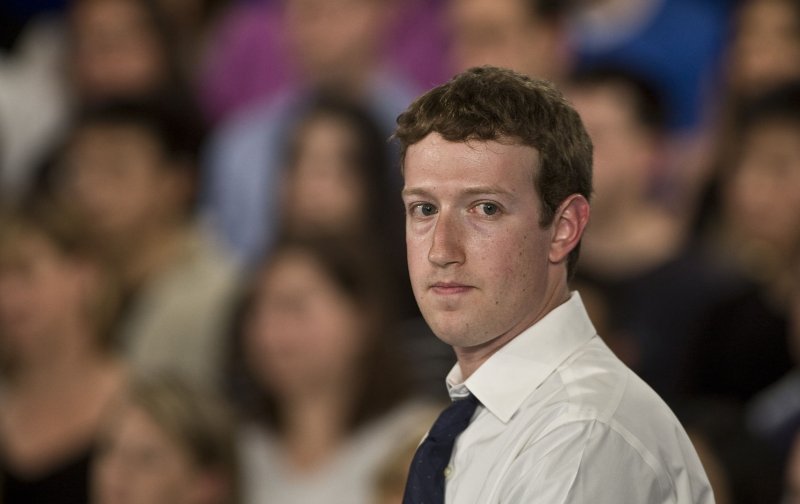Facebook CEO Mark Zuckerberg participates in an online town hall meeting with President Barak Obama at Facebook headquarters in Palo Alto, California on April 20, 2011. UPI/Terry Schmitt |
License Photo
WASHINGTON, March 6 (UPI) -- Many colleges and employers across the country now require access to Facebook profiles, in what some lawyers say is an invasion of privacy.
Applicants to Maryland's Department of Corrections have been asked to login to Facebook profiles during interviews and scroll through photos and wall posts. Previously applicants were required to surrender their passwords, a practice stopped by a complaint from the ACLU.
Several colleges now require student athletes to allow coaches to monitor their "friends only" posts.
University of North Carolina recently revised their student handbook to include such a requirement: "Each team must identify at least one coach or administrator who is responsible for having access to and regularly monitoring the content of team members' social networking sites and postings. The athletics department also reserves the right to have other staff members monitor athletes' posts."
Washington, D.C., lawyer Bradley Shear says schools and employers are violating the first amendment with policies like these.
"I can't believe some people think it's OK to do this," he told MSNBC.com. "Maybe it's OK if you live in a totalitarian regime, but we still have a Constitution to protect us. It's not a far leap from reading people's Facebook posts to reading their e-mail … As a society, where are we going to draw the line?"
Shear cited the landmark 1969 court case Tinker v. Des Moines School District, which ruled school officials could not bar students from wearing arm bands in protest of the Vietnam war, as long as they weren't inciting violence. Shear says this case, among others, protect the rights of students to express themselves.















